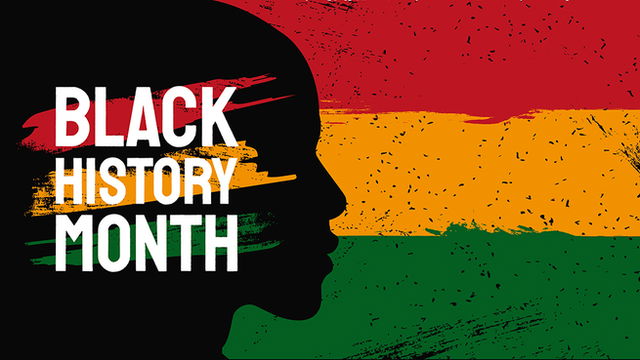- Calendar
- Calendar 2026
- February
- Black History Month
Black History Month
Black History Month, also known as African American History Month, begins on February 1st and lasts throughout the month.
We celebrate Black History Month to honor the long historical achievements and contributions of African Americans. It began almost 100 years ago and lasted for a week. Slowly, it became a month-long celebration to honor the influence of black culture across the globe.
Initially named Negro History Week, Black History Month's founder was a student of African American Studies and Historian Carter G. Woodson.

In 1915, 50 years after the abolition of slavery, Woodson and Jesse E. Moorland, a minister, founded the Association for the Study of Negro Life and History (ASNLH).
Its purpose was to research black Americans and Africans' achievements and contributions and promote them within the American society, to educate people, as they found that African American history was, at the time, overlooked by academia, and not being taught properly in schools.
Why is Black History Month in February?
It all began in 1926 when Carter G. Woodson graduated with a Ph.D. from Harvard. He was an African American historian and he started black history week which was then known as the Negro History Week to throw light on the lives, achievements, and contributions of Black Americans and represent them openly in the White society.
The Negro History Week became a month-long celebration in 1976 under the rule of President Gerald Ford. Carter G. Woodson chose the month of February to pay tribute to President Abraham Lincoln and Frederick Douglass as both of them were born in the same month.
The Evolution of Black History Month
We all know that during the rule of President Lincoln, he issued the Emancipation Proclamation in 1863 which freed enslaved Americans and gave them independence in the Confederate States of America.
Frederick Douglass became a popular speaker, abolitionist, and writer after escaping American slavery in 1838. Many of his works became popular like “A Narrative of the Life of Fredrick Douglass, an American Slave” and are still read by people everywhere.
Some other famous figures who are worth mentioning not only in Black History but in the History of the world, are
- Dr. Martin Luther King Jr who fought for equal rights for Black people during the 1950s-60s,
- Thurgood Marshall, who was the first African-American justice appointed to the Supreme Court of the United States in 1967,
- Mae Jemison, the first African-American woman astronaut to travel to space in 1992, and
- Barack Obama- the first ever African-American president of the United States in 2008.
During the Civil Rights Movement, which took place in the 1950s and 1960s, black people fought for their equality under American Law.
Even though slavery had been abolished in the 19th century, African Americans were still severely marginalized. They had to harden destructive racism, especially in the American South where Jim Crow segregationist laws were in place. Thus began an unprecedented fight for equality that lasted for two decades.
It was during this time, and in a celebration of black identity, that Negro History Week became Black History Month.
At first only recognized as a month of celebrations in some cities, by a few mayors, it was officialized by President Gerald Ford in 1976, who declared Black History Month a national observance.
The Significance of Black History Month
Even though we are living in a highly advanced and modern world, the hate against the black culture persists. Hate crimes are rising at an alarming rate. The world is becoming a barbaric place.
However, many countries across the world have joined the movement since 1926 in celebrating and honoring Black people.
The significance of Black History Month today cannot be put into words. Numerous national organizations like the National Endowment for the Humanities, the National Park Service, the National Gallery of Art, the Library of Congress, and many more. These organizations play a major role in paying tribute to Black History with memorable events.
Black History Month Themes
Since being made official, every year when announcing the beginning of Black History Month, the president in office will also announce the theme of the month for that year. The theme is meant to be the topic of the reflections and lectures that happen during the month.
The theme for Black History Month 2024 is “African Americans and the Arts”
Themes are related to Black History and have ranged from Civil Rights in America in 2014, to Black Migrations in 2019. The theme chosen for 2020 was African Americans and the vote and is meant to focus on the 15th amendment, which gave black men the right to vote, and the 19th amendment, which gave all women the right to vote.
Black History Month celebrations
With its original purpose being the education towards the awareness of African American achievements, it is no surprise that Black History Month is mostly celebrated in schools.
Activities include students reading works by African-American authors such as Maya Angelou, and Toni Morrison, and often the poem “I, too, sing America” by Langston Hughes is taught. The important legacy of black Americans is also discussed, like the case of Brown vs Board of Education, a huge landmark and victory in African-American history, where segregation in schools was made illegal.
It has also become a tradition for teachers and students to decorate their classroom doors with photos and quotes honoring famous and notable African-American figures in history.
Read these articles next:

Other Celebrations
-
Mar 01 Sat
-
Jul 01 Tue
-
Oct 01 Wed
-
Nov 01 SatNational Adoption Month
-
Nov 11 Tue
-
Nov 28 Fri

Black History Month - Next years
Monday, 01 February 2027
Tuesday, 01 February 2028
Thursday, 01 February 2029











